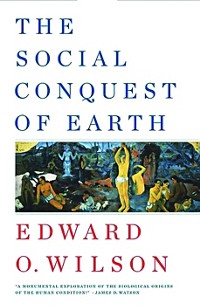Advertisement
Grab your lab coat. Let's get started
Welcome!
Welcome!
Create an account below to get 6 C&EN articles per month, receive newsletters and more - all free.
It seems this is your first time logging in online. Please enter the following information to continue.
As an ACS member you automatically get access to this site. All we need is few more details to create your reading experience.
Not you? Sign in with a different account.
Not you? Sign in with a different account.
ERROR 1
ERROR 1
ERROR 2
ERROR 2
ERROR 2
ERROR 2
ERROR 2
Password and Confirm password must match.
If you have an ACS member number, please enter it here so we can link this account to your membership. (optional)
ERROR 2
ACS values your privacy. By submitting your information, you are gaining access to C&EN and subscribing to our weekly newsletter. We use the information you provide to make your reading experience better, and we will never sell your data to third party members.
Synthesis
Addicted To Growth
by Rudy M. Baum
June 28, 2010
| A version of this story appeared in
Volume 88, Issue 26
The subprime mortgage debacle. The Great Recession. Derivatives and hedge funds. The effective bankruptcy of Greece and the subsequent collapse of the euro. China’s imminent bubble.
The catastrophic oil spill in the Gulf of Mexico. Weeds resistant to glyphosate. Bacteria resistant to antibiotics. Global climate change.
The common factor? Humans want too much. Too many humans are greedy to the point of madness, and neither the global economy nor the global environment can withstand the onslaught of our greed.
Our greed, however, isn’t the root cause of the problems we face. Our greed is a symptom of a far more fundamental flaw in the way humans organize their societies and their economies: We are addicted to growth. That addiction to growth stokes the greed that drives the endless and often pointless consumption that we have defined as economic success.
The problem with being addicted to growth is that we live on a finite planet. No matter what growth’s apologists claim about finding more resources or harnessing new technology, an addiction to growth, by definition, must at some point collide with reality.
Proponents of endless growth insist that humans have always in the past overcome perceived resource limitations. This is a silly argument. We have been burning fossil fuels, the resources that underpin modern civilization, for a mere two centuries, a period of time that hardly qualifies as “always.”
In the new book “Eaarth: Making a Life on a Tough New Planet,” Bill McKibben, an environmentalist and a scholar-in-residence at Middlebury College, argues that anthropogenic climate change/global warming is already well advanced. It is not a problem for future generations. It is a problem for us. McKibben makes a persuasive argument that humans must begin, right now, to adapt to a radically changed planet. Earth, the planet that humans evolved on and which gave birth to human civilization, no longer exists. In its place is a radically changed place, “with melting poles and dying forests and a heaving, corrosive sea, raked by winds, strafed by storms, scorched by heat. An inhospitable place.”
Most important, though, McKibben writes, is that it is a planet that will no longer tolerate growth. “Of all the things I’ve told you about our new planet … the most terrifying and strangest change would be the end of growth. Growth is what we do. Who ever dreamed it might come to an end?” he writes.
The first half of “Eaarth” is devoted to making the case that humans have already irrevocably changed the planet and that life in the future will have to be different because of those changes. The second half of the book focuses on what humans might do to achieve a good, sustainable existence on this new planet, as opposed to facing catastrophic collapse.
“The trouble with obsessing over collapse,” he writes, “is that it keeps you from considering other possibilities. Either you’ve got your fingers stuck firmly in your ears, or you’re down in the basement oiling your guns. There’s no real room for creative thinking. To its theologians, collapse is as automatic and involuntary as growth has been to its acolytes.”
McKibben insists that there is another possibility, that we should be able to create social structures and an economic system that do not depend on growth. Near the end of “Eaarth,” McKibben writes: “My point throughout this book has been that we’ll need to change to cope with the new Eaarth we’ve created. We’ll need, chief among all things, to get smaller and less centralized, to focus not on growth but on maintenance, on a controlled decline from the perilous heights to which we’ve climbed.”
“Eaarth” is a manifesto, one that delivers a message that many people won’t want to hear and that many will dismiss out of hand. Growth is a religion, and I think McKibben underestimates how fervently many humans cling to that religion. It is a religion, however, that flies in the face of physical reality, and as such, cannot be maintained.



Join the conversation
Contact the reporter
Submit a Letter to the Editor for publication
Engage with us on Twitter